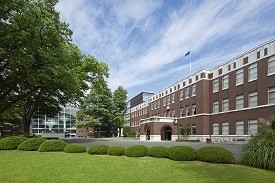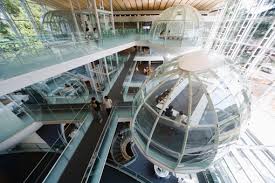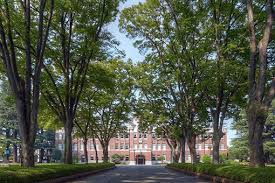The Department of Contemporary Sociology elucidates social events with a focus on sociology and media research.
Curriculum Content:
・To learn the research themes and analytical methodologies of the modern society.
・To acquire expertise in a systematic manner.
・Reading in depth the chosen theme and compiling the findings into the graduation thesis.
Characteristics of the Curriculum
At the Department of Contemporary Societies, we approach the complex modern society from two angles - the sociological approach and the media research approach.
From the sociological approach, we will analyse the current situation, history and the various underlying issues of the modern society; including family, social psychology, gender, welfare, labour and cities. From the media research approach, we will learn about various media and communication in the fields of magazines, television, adverts and the internet.
2) Developing skills through the three practical subjects to thrive in the society.
In order to make use of the knowledge that the students acquired through their studies in the real world and towards the social phenomena that surrounds it, we offer the following three unique practical subjects. In the "social survey" exercise, students conduct a survey on the general public outside of the university and statistically analyse the data collected. In the "media and literacy" exercise, students will learn and experience the media creation side by creating television programs by themselves and actually having it broadcasted on cable TV. In the "community" exercise, through fieldwork activities, they will research the current situation and reveal the possible issues in various regions from different angles. Through these active learning methods, we aim to deepen their understanding towards the modern society.
3) Developing problem finding, research and communication skills.
At the Department of Contemporary Societies, students will first acquire "problem finding" skills in order to grasp how the modern society runs, and then cultivate their "research" skills to conduct social research and media analysis all by themselves. Having developed these two skills, the students then work on their "research expression" skills. This way they will be able to effectively communicate their findings from their analysis in presentations and reports. By taking the courses at the Department of Contemporary Societies and other necessary expertise subjects, the students then become eligible to take the test to become a certified "Social Investigator;" a professional of information collection and data analysis.
Providing that the students are a part of the Faculty of Cultural studies, they will be able to take advantage of the following two courses regardless of what subject they currently take.
1) Japanese Teacher Training Course
In addition to acquiring high level Japanese teaching skills, through the language, the students will be able to deepen their understanding towards Japanese and overseas individuals, society and culture.
2) Arts and Culture Administration Course
Whilst learning the practical promotion methods of arts and culture lead by the government and NPOs, through the arts and culture, we will also study a society where various people are able to live together.



